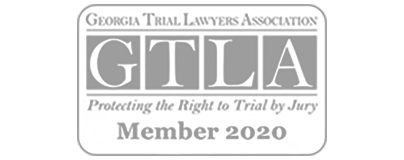Home | Glossary of Personal Injury Terms | Burden of Proof
Burden of Proof
The term “burden of proof” plays a crucial role in legal proceedings, particularly in personal injury cases. It refers to the obligation of the plaintiff, or the party initiating the lawsuit, to present sufficient evidence to support their claims. In most personal injury cases, this requirement for proving a claim is based on the “preponderance of the evidence.” However, there are certain situations that may require a higher threshold known as “clear and convincing evidence.”
The Basics of Burden of Proof
The plaintiff bears the burden of proof in civil law. Unlike criminal cases, where the prosecution must establish guilt “beyond a reasonable doubt”, personal injury cases operate under the principle that the plaintiff must demonstrate their claims are more likely true than not. Essentially, if the evidence presented by the plaintiff surpasses that of the defendant, even marginally, the plaintiff prevails. The evidence tips the scale in favor of the party holding it.
Preponderance of the Evidence
The “preponderance of the evidence” standard is often colloquially referred to as the “more likely than not” threshold. To illustrate, envision both the plaintiff and defendant contributing evidence to a large scale. The plaintiff succeeds if their evidence outweighs that of the defendant, regardless of how slight the margin may be. This means that even if the plaintiff’s evidence is only marginally more persuasive—think of a weight as light as a peppercorn—they can still secure a victory.
Core Elements of Negligence Claims
Many personal injury claims stem from negligence, where the plaintiff must establish four essential elements to succeed in their case:
Duty of Care
The plaintiff must show that the defendant had a legal obligation to act with a certain standard of care towards them. Although this is primarily a legal issue, the plaintiff may need to provide context surrounding this duty, such as professional standards applicable in specific situations.
Breach of Duty
This factual question revolves around whether the defendant failed to meet the established standard of care. For instance, if a grocery store owner neglects to clear snow from their parking lot leading to a slip and fall, the plaintiff would need to prove the frequency with which the defendant maintained the area.
Injury
The plaintiff must demonstrate that they suffered a physical injury as a direct result of the incident, supported by various forms of evidence including medical records or eyewitness accounts.
Causation
This requires demonstrating that the plaintiff’s injury was directly caused by the defendant’s failure to fulfill their duty. Evidence might include specifics about the circumstances surrounding the incident, such as the speed of a vehicle involved in a collision.
Failing to substantiate any of these elements can result in the dismissal of the case without compensation.
Affirmative Defenses
In response to a personal injury claim, a defendant might invoke an affirmative defense. This involves introducing new evidence or arguments that could absolve them from liability. Common affirmative defenses include:
- Superseding Cause. An event that interrupts the causal chain between the defendant’s action and the plaintiff’s injury.
- Assumption of Risk. The plaintiff knowingly exposed themselves to danger.
- Comparative Fault. A third party played a role in causing the injury.
The defendant must also meet the “preponderance of the evidence” standard when asserting these defenses.
Clear and Convincing Evidence
In Georgia, pursuing punitive damages requires clear and convincing evidence in certain scenarios. This standard necessitates that the plaintiff establish a high probability that their account of the events is accurate. While it is less stringent than the “beyond a reasonable doubt” standard used in criminal cases, it is notably more challenging than the “preponderance of the evidence” standard.
The Role of Punitive Damages
Punitive damages fulfill a specific role. They aim to penalize defendants for particularly outrageous behavior, rather than providing financial compensation to plaintiffs for their losses. To successfully claim punitive damages, a plaintiff must also seek compensatory damages. The court assesses compensatory claims using the “preponderance of the evidence” standard, whereas punitive claims are examined under a higher threshold known as the “clear and convincing evidence” standard. This entails demonstrating that the defendant acted with willful misconduct or displayed a complete disregard for the consequences of their actions.

GEORGIA PERSONAL INJURY LAWYER NEAR ME
Contact a South Atlanta Personal Injury Attorney
Navigating the complexities of personal injury claims and the associated burdens of proof can be daunting. Engaging an experienced personal injury lawyer can offer essential support and advice. The Jewkes Firm’s knowledgeable legal professionals can help plaintiffs understand which burden of proof applies to their case and how to meet those requirements effectively. Many personal injury lawyers operate on a contingency fee basis, meaning you can pursue your claim without upfront legal costs.
For a comprehensive consultation, contact our office at (770) 771-5130 and explore your legal options today.
GET A FREE CASE REVIEW
PRACTICE AREAS
Frequently Asked Questions?
Do I need a personal injury attorney?
The Jewkes Firm is well-versed in effectively challenging major insurance companies on your behalf to secure the highest settlement permissible by law. Our primary objective is to ensure your optimal recovery. It is only after this point that we assess the worth of your case.
What is the deadline for filing an injury case in Georgia?
The timeframe for filing an injury case, also known as the statute of limitations, can vary significantly. As per OCGA §9-3-33, you are granted a two-year period from the date of your injuries or the passing of a family member to initiate your personal injury claim.
What is the cost to hire a personal injury attorney?
There is no upfront cost associated with hiring a personal injury lawyer. Our fees are based on a percentage of your settlement, meaning you only pay if we successfully recover compensation. Our top priority is ensuring your well-being and helping you return to your normal life.
What damages can you recover from a personal injury?
A personal injury lawyer aims to establish negligence and seek restitution for the harm caused by the liable party. Additionally, you may be entitled to compensation for funeral costs, medical expenses, and income lost if you are a family member of someone who died as a result of an injury.
Free Case Evaluation











